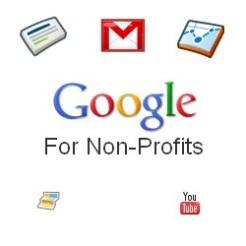Google has launched its full range of support for charities in England and Wales, more than two years after launching in the US and promising to bring the package to the UK.
The technology firm launched the package in the US in March 2011, and at the time told civilsociety.co.uk that plans were afoot to introduce it in the UK and elsewhere. The UK is the first country outside of the US to benefit from the scheme.
A petition on Change.org urging Google to make the service available for UK charities reached 346 signatures.
Through the package charities get free access to the online collaboration suite Google Apps, which includes Gmail, Google Talk, Hangouts and Drive. Charities will also have access to educational videos and invited to the Google+ international community for non-profit organisations as well as access to premium features in YouTube and Google Earth Outreach.
UK charities were already able to access some parts of the programme, such as the Adwords scheme and Google Grants. Those that have already signed up to those programmes do not need to re-register for those services when applying for the new aspects.
To apply for the Google for Nonprofits charities need to be registered with the Charity Commission, with headquarters in the UK. Healthcare and education organisations are not eligible for the programme, although Google runs a similar programme of support for educational institutions.
Charities based in Scotland, and just registered with the OSCR, and those based in Northern Ireland, are not yet eligible to apply for the scheme. A spokeswoman told civilsociety.co.uk that it is currently working on opening up applications to Scotland and Northern Ireland.
Dan Cobley, managing director of Google UK said: “We want to support the incredible work of charitable organisations in the UK by eliminating some of the technical challenges and costs they face.”









